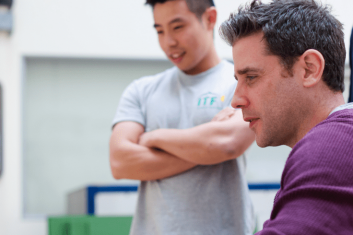Two years have passed since legendary venture capitalist and tech guru Mark Andreesen went on a rant about how ‘software was eating the world.’ If anyone should know, it’s Andreesen, who sits on the board of Hewlett-Packard, Facebook, and e-Bay. In his famous rant he argued that more and more major businesses and industries are being run on software and, Andreesen argues, this trend will only grow with entire industries being disrupted by software. Techies and economists alike are hopeful that this trend will stick. According to Uplifted blogger, Todd Davis, the technology industry is primed to dramatically shift the economic sector by taking over gigantic portions of it while simultaneously absorbing traditional businesses and altering the way our lives operate for the better. In 2012 just 18% of I.P.O’s in the United States are part of the tech industry. However, with Facebook’s move to the public realm followed by a fellow heavyweight, Twitter, it appears it is only a matter of time before we see increased interest in tech investments.
Traditional Market Absorption
Central to the discourse surrounding this impending paradigm shift is the argument that traditional industries are being absorbed by software. Take the automotive industry. Google’s driver-less car, reportedly safer than human drivers, is the most blatant example of the takeover and closer to reality than most of us are ready to accept. Already heavily controlled by computer systems – the GPS, entertainment, control features and engines in our vehicles are all signs of this change. Google’s driverless car will have a massive ripple effect, influencing industries linked to automobiles. Changes to insurance companies, traffic patrols and policing, laws, licensing departments, road maintenance and creation, parking, public forms of transit, etcetera, are inevitable. The shift is already evident in the worlds of marketing – Google, media – Netflix, literature- Kindle, retail – Amazon, music – Spotify, recruiting – LinkedIn, telecommunications – Skype – a few among endless others.
Barriers to Change
While the majority of clout lies with proponents of the massive paradigm shift and its perceived inevitability, there are others who believe significant barriers still exist. Forbes tech contributor, Ben Kepes, argues that Andreesen fails to fully acknowledge the mechanisms of such a shift; application programming interfaces (APIs). APIs serve as the mechanical connection between different applications and between applications and different devices. Kepes suggests the disruption foretold by Andreesen and co. hinges on APIs, the ‘glue’ that adheres to the necessary components needed to disrupt the most well-established industries on the planet. If this is the case, APIs need to be simpler to design and deploy. The difficulty involved with the creation and deployment of APIs is a definite barrier to their increasing and varied existence and in turn an increase in the number of new and innovative software services. Technological barriers aside, emerging software and technology face social and psychological barriers. In order to become mainstream new technologies such as Google’s driver-less car, trust and acceptance must be established. Asking consumers to allow a computer to take the wheel is asking a lot. Mohan Trivedi, professor of electrical and computer engineering at the University of California San Diego contends consumers are not prepared to hand over this control, acceptance of such changes ‘will be an evolution.’
The Effects
There are two sides to the discourse surrounding the influence of such a paradigm shift. While I am in agreement with those who believe the change is ultimately valuable in terms of economic and social impact. It is important to recognize what will be sacrificed as a result. Back to the Google Car example, the culture and skill involved with driving are at risk of being lost. Moreover, technology has the tendency to isolate people and communities as well as it bridges gaps. Opportunity gaps will widen, as the majority of individuals will not have the education necessary to compete or contribute to the new era of software domination. The threat of job losses will be difficult to avoid as humans are replaced by software.

Founder
Hey! Welcome to our blog!
The topics we cover include IoT, AR/VR, related news, and our projects.If you’d
like to discuss an article, please
messsage
me on LinkedIn
We are open to seeing your business needs and determining the best solution. Complete this form, and receive a free personalized proposal from your dedicated manager.

Sergei Vardomatski
Founder




